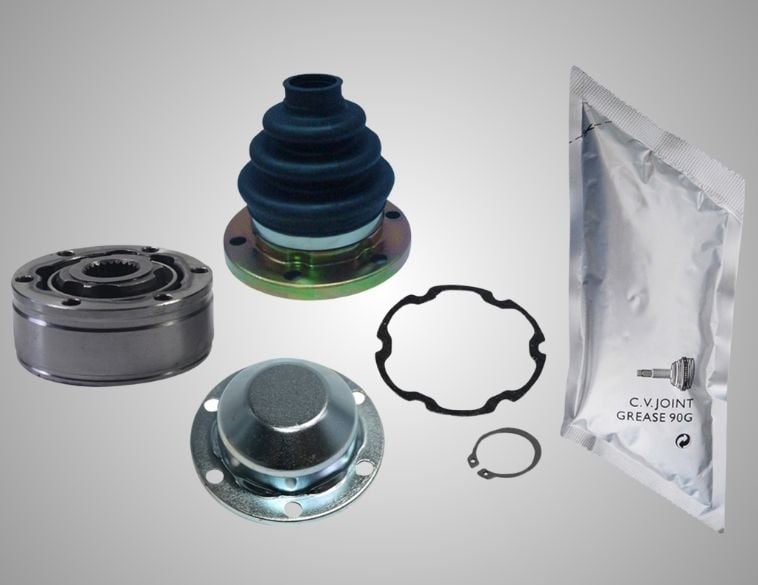Looking back at a prolific career, Joe Mercanti shares some memorable moments and some key takeaways for the next generation.
Joe Mercanti has had a long and distinguished career in the Canadian Automotive Aftermarket industry.
Recently retiring from his role as Channel Sales Manager for WORLDPAC Canada, Joe decided to sit down with Autosphere.ca and share his experiences in the industry. Including, his early days working on the performance side of the business as well as the importance of mentorship and guidance in forging a successful career.
Introduction to automotive aftermarket
Autosphere: How did you first get started in the automotive aftermarket industry?
Joe Mercanti: I’ve basically been involved in the automotive aftermarket my entire life. Growing up, my father owned a body shop and we lived right beside it. He passed away early on and so I moved onto other things for a while.
Later, when I was attending university, and in the middle of transferring from one to another, I got offered a job at a company called Canadian Performance Distributors in Hamilton, Ont. I pretty much started working there as a summer job, but I enjoyed it so much that I just carried on and progressed through the company, becoming part of the management team.
It was a family-owned company and there were two sons involved that I got to know fairly well, and I was able to grow with the company.
Early days in the aftermarket industry
Can you tell us what it was like working in those early days?
JM: CPD was a family business, and in that kind of environment you tend to do a little bit of everything, especially as the company grows. I found a spot in purchasing and became the purchasing director, setting up buying policies and stuff like that.
It was really fun in those early days, especially because we were selling something that was a want rather than a need. The performance market is a bit like the fashion business—it changes every day and that’s what makes it exciting. A lot of the manufacturers that got into that business did because they were racing enthusiasts, and they had developed products for race cars and felt that the product also worked well for a larger, more street-oriented audience.
As a purchasing director, getting involved with different clients and different projects, finding out what was changing and evolving, was very exciting. There was a lot of growth in that sector of the business at that time and that’s why I stuck with it.
Career roles and responsibilities
Can you tell us about some of the roles you’ve held during your career and what they involved?
JM: Working at CPD was very exciting and each day felt like it wasn’t working at all.
The company was sold to Acklands in 1986 and then acquired again by Uni-Select in 1989. I ended up taking on new roles in different companies—sales manager roles and then started my own company, as a sales rep, bringing products from the U.S. up into Canada and then having them distributed here.
It was very exciting because you learned firsthand how our product came from the U.S. and saw how it became popular in Canada—exposing a lot of people to a product or a brand that previously wasn’t very visible. I also got involved in the truck accessory business for quite a while selling bed liners and step-rails, etc. After that, I got into the traditional aftermarket side of the business, working for a rep agency.
I brought in different product lines—so-called White Box items, which proved very viable for the business and it changed the way of going to market with product.
Mentors that influenced Joe Mercanti
Were there any mentors or people in the industry that influenced your career?
JM: I think the big one was always my father. He passed away at a young age–he was only 40 years old—but he was a man that worked very hard and once said to me that ‘the harder you work the luckier you get.’ And that was something I took to heart.
He was also a very social person—we always had people at our house–and that was another thing that stuck, that being successful is all about the relationships you have. My father was a big influence in terms of a mentor, but there are a lot of others that have I learned quite a bit from over the years.
Two others that come to mind are Don Chase and Doug Williams because, at the time when Canadian Performance was getting more and more into the traditional side of the business, they were a huge help in getting me involved and understanding that aspect of it. They really helped me in getting in tune with it all.
Evolution of the automotive aftermarket
When looking at how the automotive aftermarket has evolved, what were some of the biggest changes you saw during your time in the industry?
JM: A big thing I saw was consolidation, not only at the distributor level but also at the manufacturer level as well and that was something that really changed the business.
At one time you had more than 100 different manufacturers but gradually it evolved to the situation today where you have a small number of manufacturers that own a lot of different brands. There was a prevailing view at one time that bigger was better but a lot of those companies have since found that bigger isn’t always better and ended up selling off a lot of the brands they acquired and got back to focusing on their core products
At the distributor level, there was consolidation too, with smaller players acquired by bigger ones. I think those are probably the biggest changes we’ve seen in the industry.
Ontario AIA Chair
Can you tell us a little about your work on the association side, including being the Ontario AIA Chair?
JM: One thing I can say is that being a part of an association is a great way to grow your network and that’s what AIA Canada certainly did for me.
AIA represents the voice of the automotive aftermarket industry and being a part of a network like that really helps in tackling issues that face the industry and being able to do it collectively. The other part I really enjoyed about being involved in AIA was the ability to give back such as being part of the High Fives for Kids program.
I became a Director for High Fives for Kids and it was great for us to be able to give back to the communities in which our industry works. It was very exciting to be able to make a difference like that.
Retirement plans
Now that you have retired, what are your plans for the future?
JM: I really want to enjoy time with my family. My wife is still working but I enjoy making supper each night for us and also spending time with our two grandkids and seeing them grow.
Advice for young aftermarket professionals
Based on your own career, what advice might you give for young people considering a career in this industry?
JM: There are a couple of things I’d like to mention— namely getting to know people and networking.
I think it’s very, very important to be present and show up. You have got to be visible in terms of this business, as with any business really and you need to be out there and participating in different things. You need to be at trade shows and participate in social events like charity golf tournaments.
It’s also really important to help others, even if you not might see the benefits to you, your own positive actions can really make a difference for other people. I’d also stress the importance of being honest. An example that is in my case, if I thought a product wasn’t really suitable for a particular customer I would say so, and recommend an alternative, even if it was a competitor’s product.
Being honest and having integrity in this business is very important and so is having a good work ethic. Going back to what my father said, ‘the harder you work, the luckier you get,’ well I think it’s not just about working harder but working smarter too.
Final thoughts
Anything else you’d like to mention?
JM: I’d just like to say thank you very much to everybody that I was involved with over the years. I’d also really like to thank the team at WORLDPAC too. When I joined the company about six years ago, I really felt charged up again, as I did in my days at CPD.
I was very excited to grow the national account program and it was great to be a part of a vibrant and growing company like that. I’d also like to mention that even though I’m retired I’ll still be around and plan to stay in touch with people, but ultimately, I’d just like to say thank you to everybody in the industry who I’ve gotten to know over the years.
This really is a great business and I’m so proud to have been a part of it.


